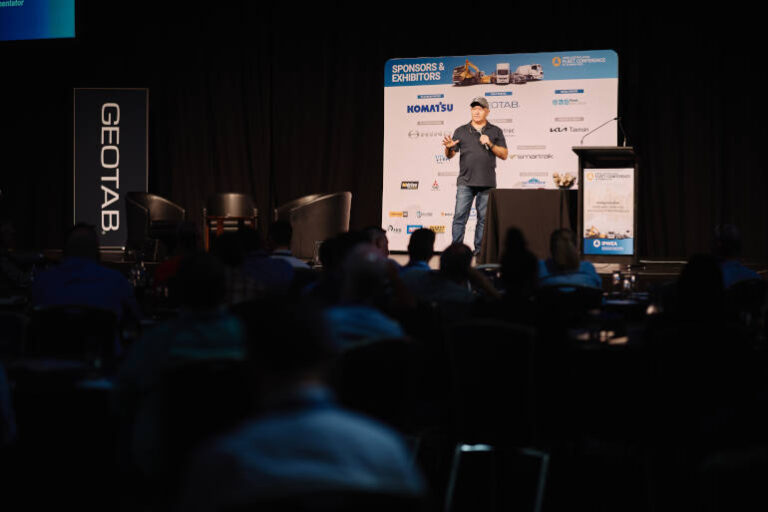There were plenty of highlights on Day One of the 2025 IPWEA Fleet Conference in Brisbane — but if you were at the networking function that evening, there was only one thing everyone was talking about: John Cadogan.
His presentation was provocative, challenging, and for some in the audience, confronting. It wasn’t controversial for controversy’s sake — it was classic Cadogan: witty, well-researched, and brutally honest. He didn’t mince words, and while he had a few EV advocates quietly fuming, he also had a room full of fleet professionals hanging on every sentence.
Here’s a breakdown of the key themes from Cadogan’s talk and why they resonated so strongly.
Not Anti-EV — Just Pro-Truth
Let’s get one thing straight: John Cadogan isn’t anti-electric vehicle. In fact, he made it clear that electric cars themselves are an impressive achievement. His issue is with the implementation — the hype, the spin, and the lack of critical thinking.
His message? “Question everything.”
Too often, Cadogan argued, we’re being swept up in idealistic narratives around technology, particularly EVs, without properly examining the facts. He encouraged the audience to distinguish between “truth” and “bullshit” — a term he used liberally to describe some of the industry’s more optimistic marketing claims.
Three Core EV Criticisms
Cadogan laid out three major concerns about the current state of EV adoption — all practical, all grounded in real-world experience.
1 – The Charging Network Is Crap
That’s his word, not ours. But he’s not wrong. Unreliable chargers, network fragmentation, app overload, and poor regional coverage are all issues fleets deal with regularly.
“If just one charger goes down in the regions, you’re stranded,” he said. “It’s crazy that you need 10 apps to use the network and there’s no fallback like a credit card reader.”
2 – No Real Safety Strategy
Thermal runaway in lithium-ion batteries is rare — but when it happens, it’s catastrophic. Cadogan pointed to a recent EV fire in South Korea that displaced hundreds of residents.
“There is no plan in Australia if something like that happens in a basement car park. It’s not under control.”
3 – The Recycling Myth
He questioned the industry’s confidence that batteries are being recycled effectively.
“There’s a difference between ‘recyclable’ and ‘being recycled.’ No one’s lining up to pay you for old EV batteries. There’s no legislation, no real plan.”
The BYD One-Megawatt Charging ‘Miracle’
Cadogan also took aim at recent headlines about BYD’s one-megawatt charging tech. While he applauded the engineering achievement, he called out the misleading spin:
- The five-minute recharge touted wasn’t a full charge — it was a partial top-up.
- The claimed 400km of range was based on China’s CLTC test cycle — which is wildly optimistic compared to real-world figures.
- And the safety implications of letting the public handle one-megawatt charging cables? “That’s nuts,” Cadogan said.
Hydrocarbons: Not Evil, Just Misunderstood
In a bold claim, Cadogan called hydrocarbon energy “the best thing that’s ever happened to humanity.”
Why? Because it gave us access to energy that liberated humans from subsistence living. Electricity, mobility, medicine — all of it was made possible by burning stuff.
“We’re the only species that accesses more energy than we consume through food. That’s our trick,” he said. “Without hydrocarbons, you wouldn’t be sitting here in comfort listening to me rant.”
He wasn’t saying climate change isn’t real — in fact, he explicitly said the opposite: “Climate change is real, it’s us doing it, and it’s an existential threat.”
But demonising hydrocarbons while depending on them was, in his view, disingenuous.
EVs Aren’t a Silver Bullet
Cadogan drove home the point that EVs aren’t a climate solution on their own — especially not when recharged from Australia’s fossil-fuel-heavy grid.
Using data from the Clean Energy Regulator, he calculated that the average EV recharged using grid electricity produces around 160g CO₂ per kilometre — roughly the same as a petrol-powered Hyundai i30.
“We cannot reduce emissions just by changing the badge on the boot. If we want real change, we have to be honest about where the electricity comes from.”
A Call to Fleet Managers: Be the Adults in the Room
Cadogan ended with a direct challenge to the fleet professionals in the room: make rational decisions based on facts, not hype.
“You guys have the ability to move the needle,” he said. “Your job is to use hydrocarbons efficiently — not waste them — and to deploy EVs where they make sense.”
For fleets replacing 5% of their vehicles each year, Cadogan pointed out that even a 100% switch to EVs starting today would take 20 years. That’s why, he argued, fleet managers should be laser-focused on emissions reduction, not just electrification.
Why It Hit Home
Cadogan’s session was a masterclass in critical thinking. He wasn’t there to tell people what they wanted to hear — he was there to challenge assumptions and demand a more evidence-based approach to decision-making.
And despite the ruffled feathers among some EV diehards, most attendees found it refreshing. His mix of humour, facts, and sharp observation struck a chord with a room full of professionals trying to navigate a rapidly changing mobility landscape.
Looking Ahead
If you missed the 2025 IPWEA Fleet Conference, this was one of those presentations that had people talking long after it ended — not just because it was entertaining, but because it was important.
Next year’s Fleet Conference in Melbourne is shaping up to be just as thought-provoking. If you’re serious about making better decisions for your fleet and your community, make sure it’s in your calendar.






